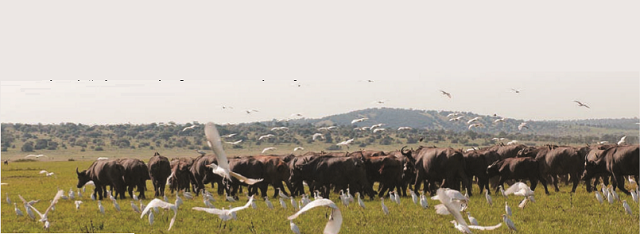
Rwanda is set to benefit from a US$65 million (Approx. Rwf53 billion) from the Wyss Foundation given to African Parks to bolster conservation several countries.
The funds will go toward African Parks’ management of Liwonde National Park, Majete Wildlife Reserve and Nkhotakota Wildlife Reserve in Malawi, Akagera National Park in Rwanda, and five still-to-be-identified protected areas in other countries.
African Parks, a South Africa-based organization, manages six million hectares across ten protected areas in seven African nations.
“The Wyss Foundation is partnering with African Parks to safeguard more large wild landscapes in Africa from poaching and destruction,” said Hansjörg Wyss, Founder and Chairman of The Wyss Foundation, said in a press release. “African Parks has demonstrated success in cooperating with local leaders, communities and African nations in preserving ecosystems benefiting wildlife, while supporting local communities and populations. We are proud of our partnership with African Parks.”
The donation builds on a 2015 grant from Wyss that enabled African Parks to reintroduce lions to Rwanda after they had been driven to extinction during the genocide of 1994. That lion population has since doubled.
The Wyss Foundation is a private, charitable foundation dedicated to supporting innovative, lasting solutions that improve lives, empower communities, and strengthen connections to the land. It was founded by Hansjorg Wyss who, as a young man climbing and hiking the Rocky Mountains, developed a lifelong love open lands and a passion for discovery and innovation.
With a successful career in life-saving medical science, Wyss created the Wyss Foundation in 1998 to help ensure that the iconic American landscapes that inspired him are protected for everyone to experience and explore.
Today, the Wyss Foundation’s philanthropy supports projects in areas from conservation and education to economic opportunity and social justice. Each philanthropic investment seeks to encourage new ideas and new solutions that expand the reach of human possibility and compassion.
African Parks is a non-profit conservation organisation that takes on the complete responsibility for the rehabilitation and long-term management of national parks and protected areas in partnership with governments and local communities.
It has the largest counter-poaching force in Africa, with over 600 rangers on staff, and the most amount of area under protection for any one NGO in Africa. It manages 10 national parks and protected areas in seven countries covering six million hectares in Malawi, Zambia, Central African Republic, the Democratic Republic of Congo, the Republic of Congo, Rwanda and Chad.
Thanks to an endowment provided by its founder, Paul Fentener van Vlissingen, it is able to cover its overheads while 100 percent of contributions such as Wyss go directly to the parks where it matters most.
African Parks and Wyss are also collaborating on a massive translocation of animals to Malawi’s Nkhotakota Wildlife Reserve.
“Up to 500 elephants are currently being moved from two parks with a surplus (Liwonde and Majete) to a third park (Nkhotakota) that until recently had been heavily poached but has since been secured and is poised to be restocked and revived as Malawi’s premier elephant sanctuary,” the statement said. “In addition to these elephants, more than 1,000 head of other animals, including sable antelope, buffalo, waterbuck and impala have also been reintroduced to Nkhotakota, re-establishing viable founder populations, and helping to restore the health of the park.”
African Parks is developing proposals for the other five new protected areas in Chad, Kenya, Mozambique and Benin that could receive support in the form of “challenge grants” if matching funds are raised.
The group, which privately manages protected areas from top to bottom, says it is also in discussions with the Governments of Zimbabwe and Zambia as part of its goal to manage 20 parks by 2020.
“Our vision is to protect 20 parks by 2020, bringing up to 10 million hectares of wilderness under our management,” said Peter Fearnhead, CEO of African Parks. “This historic gift, and the partnership forged with the Wyss Foundation, enables us to have a conservation impact at a scale which is globally significant.”
****
editor@independent.co.ug
 The Independent Uganda: You get the Truth we Pay the Price
The Independent Uganda: You get the Truth we Pay the Price



